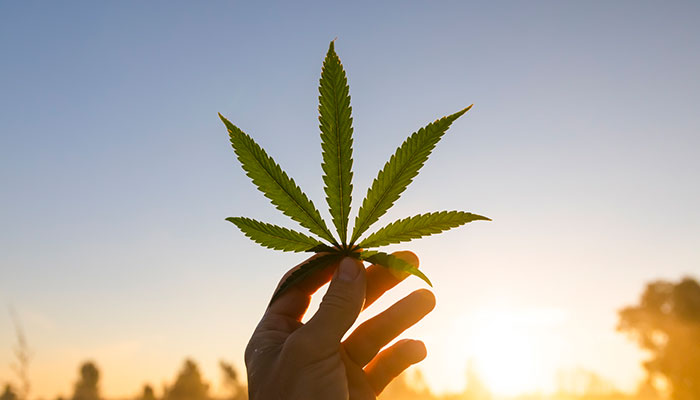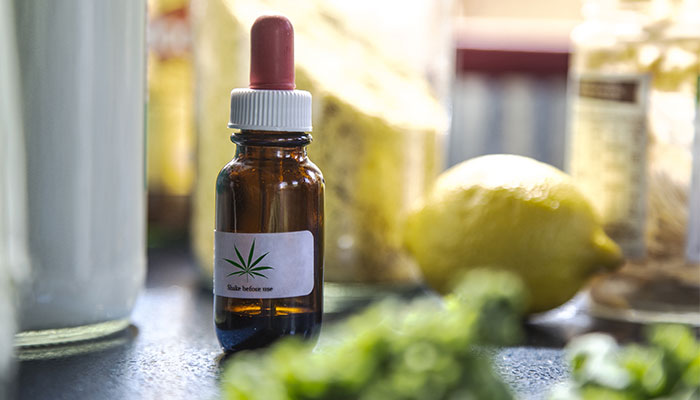Cannabis, or marijuana, is well known as a recreational drug, but it is also a potentially powerful medication with a range of uses.

Pain relief: Arthritis, pain from nerve damage, back injuries and anxiety are among the conditions sufferers say have been eased by using medical cannabis.
Medical cannabis has been legally available in Australia since 2016. Doctors and other approved prescribers can apply through the Special Access Scheme (SAS) to prescribe it for a patient. The prerequisites are that other medications have been tried but not been effective, and the doctor must believe medical cannabis could help.
So far, about 280,000 people have received approval for medical cannabis through the SAS. About a third of those people have used it to relieve chronic pain due to conditions including arthritis, back or neck injuries, or neuropathy (pain caused by nerve damage); the next most common use is to treat anxiety. There are also medical cannabis products that have gone through well-controlled clinical trials and an extensive TGA approval process and can be prescribed to treat some types of epilepsy, and to relieve the spasticity, or muscle contractions, associated with multiple sclerosis.
Anecdotally, people say they find cannabis to be a highly effective painkiller, but when randomised, placebo-controlled trials have been conducted, the results have been less clear.
In its natural state, cannabis contains active compounds, or cannabinoids, including tetrahydrocannabinol (THC) and cannabidiol (CBD). Medical cannabis products may contain both THC and CBD, while some, like CBD oil, contain only CBD. Medical cannabis preparations used for pain relief or anxiety are commonly in the form of oral drops, and the dose will vary from person to person.
THC is an effective painkiller, but it is also the key psychoactive ingredient of cannabis, causing the ‘high’ people associate with the recreational drug. Potential relief of pain and inflammation by CBD is not accompanied by a noticeable psychoactivity – there is no high, although it can make you drowsy. If you were not in pain when you took CBD, it would have no noticeable acute effect, similar to over-the-counter painkillers such as ibuprofen.
Medical cannabis is an interesting product, because it raises the question of where drugs should come from. Unlike most other medicines, it has the potential to be self-serve, so to speak. You would be unlikely to be able produce your own blood pressure medication, but legal constraints aside, cannabis is something you might be able to grow or at least procure for yourself. A significant proportion of cannabis users may indeed be self-sourcing medication, rather than simply enjoying its effects.

Not cheap: Medical cannabis preparations used for pain relief or anxiety are commonly in the form of oral drops, but it can be an expensive option, says Professor Mark Connor.
Natural contains varying amounts of cannabinoids, depending on factors such as the type of plants being cultivated, and the conditions under which they are grown. This means the results of using it are unpredictable, as one plant might contain much higher amounts of THC than the next. The way that cannabis is consumed also affects the relative amounts of active molecules – unless the product is heated, much of the CBD and THC contained in cannabis remains in an inaccessible form. Thus, taking medical cannabis products produces far more reliable and consistent effects. Those available via the SAS are extracted from the cannabis plant, but they are produced to strict quality controls and always contain consistent amounts of the active compounds, just like any other prescription medication. There may be unwanted effects, and there is a possibility of dependence, but on the whole, medical cannabis products are safe. You can’t overdose in a life-threatening manner by accident, for example, as is possible with opioids.
However, there is a class of synthetic drugs designed to mimic cannabis that have no relation to medical cannabis and should never be used as a substitute. Sold illegally in the form of vapes or sprayed onto herbs, these products have the potential to be very strong and are extremely dangerous. A significant number of people in Australia have died from using them in the past 10 years, and overseas the deaths would number in the thousands. Why people die from these synthetic cannabinoids is not clear, and this is one of the things my team and I are investigating.
- Scamming the scammers: New AI fake victims to disrupt criminal business model
- Referendum Q & A: The who, what, why and how explained
Anybody who is interested in trying certified medical cannabis for pain relief or anxiety should speak to their GP or specialist in the first instance. There is still some prejudice surrounding the use of medical cannabis, because our parents’ generation grew up being told that this was a dangerous substance. For this reason, not every clinician is prepared to prescribe it. If you find your doctor unwilling to discuss it, there are special access clinics that can offer further information.
In deciding whether medical cannabis is appropriate for you, it is important to remember you cannot drive with any level of THC in your system. THC remains detectable in blood for a long time after its effects have worn off, and the roadside drug tests administered by police are extremely sensitive. In some states, including NSW, it is legal to drive while using CBD, so long as you are not impaired.
It is also not a cheap option. For example, enough CBD oil to last a month can cost several hundred dollars.
And as with any medication, the effectiveness of medical cannabis varies from person to person. Anecdotally, people say they find cannabis to be a highly effective painkiller, but when randomised, placebo-controlled trials have been conducted, the results have been less clear. It is hard to assess its effectiveness from positive community reports, because that feedback is coming from people for whom it works.
If we are to properly assess the uses of medical cannabis, then more clinical trials are required.
Mark Connor is a Professor of Pharmacology at Macquarie Medical School. His work is focused on opioids and cannabinoids, including the effects and toxicity of synthetic cannabinoids.



